Abstract
In spite of repeated efforts to explain itself to a wider audience, behavior analysis remains a largely misunderstood and isolated discipline. In this article we argue that this situation is in part due to the terms we use in our technical discussions. In particular, reinforcement and punishment, with their vernacular associations of reward and retribution, are a source of much misunderstanding. Although contemporary thinking within behavior analysis holds that reinforcement and punishment are Darwinian processes whereby behavioral variants are selected and deselected by their consequences, the continued use of the terms reinforcement and punishment to account for behavioral evolution obscures this fact. To clarify and simplify matters, we propose replacing the terms reinforcement and punishment with selection and deselection, respectively. These changes would provide a terminological meeting point with other selectionist sciences, thereby increasing the likelihood that behavior analysis will contribute to Darwinian science.
Keywords: behavior analysis, reinforcement, punishment, selection, deselection, evolution
Full text
PDF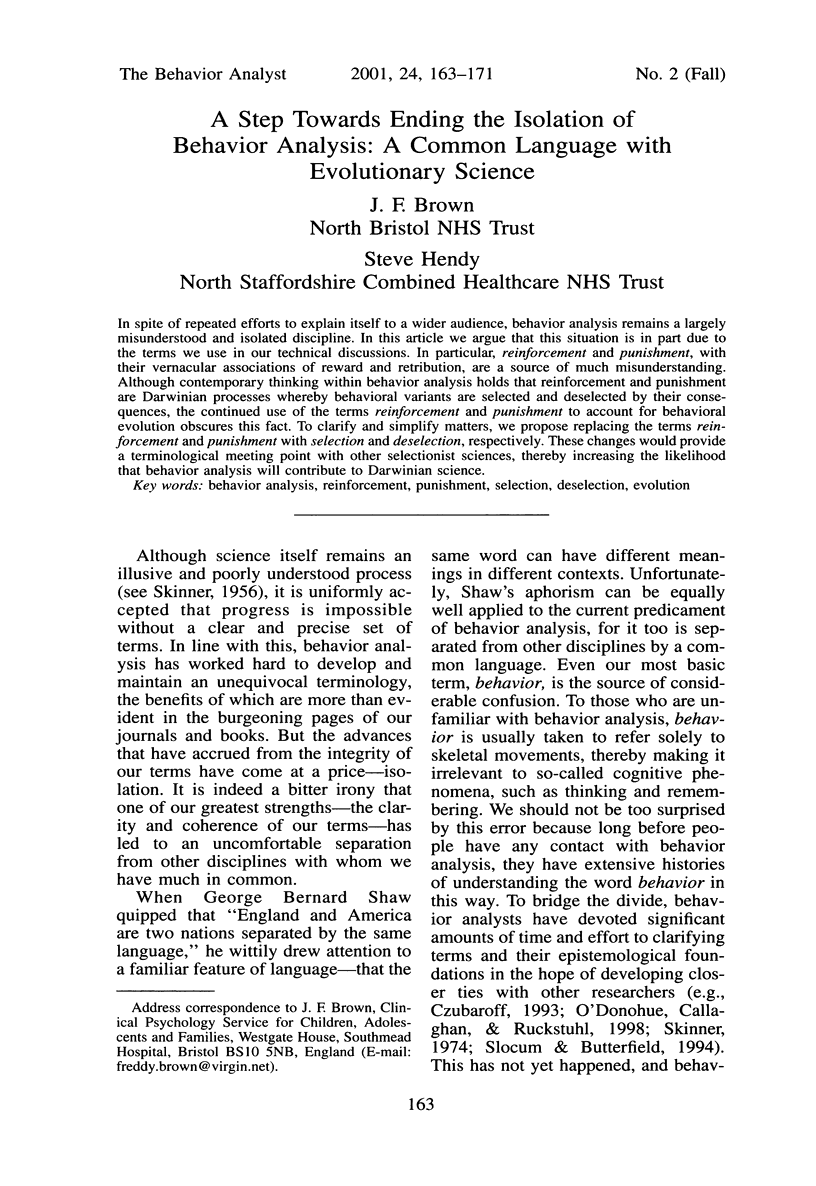
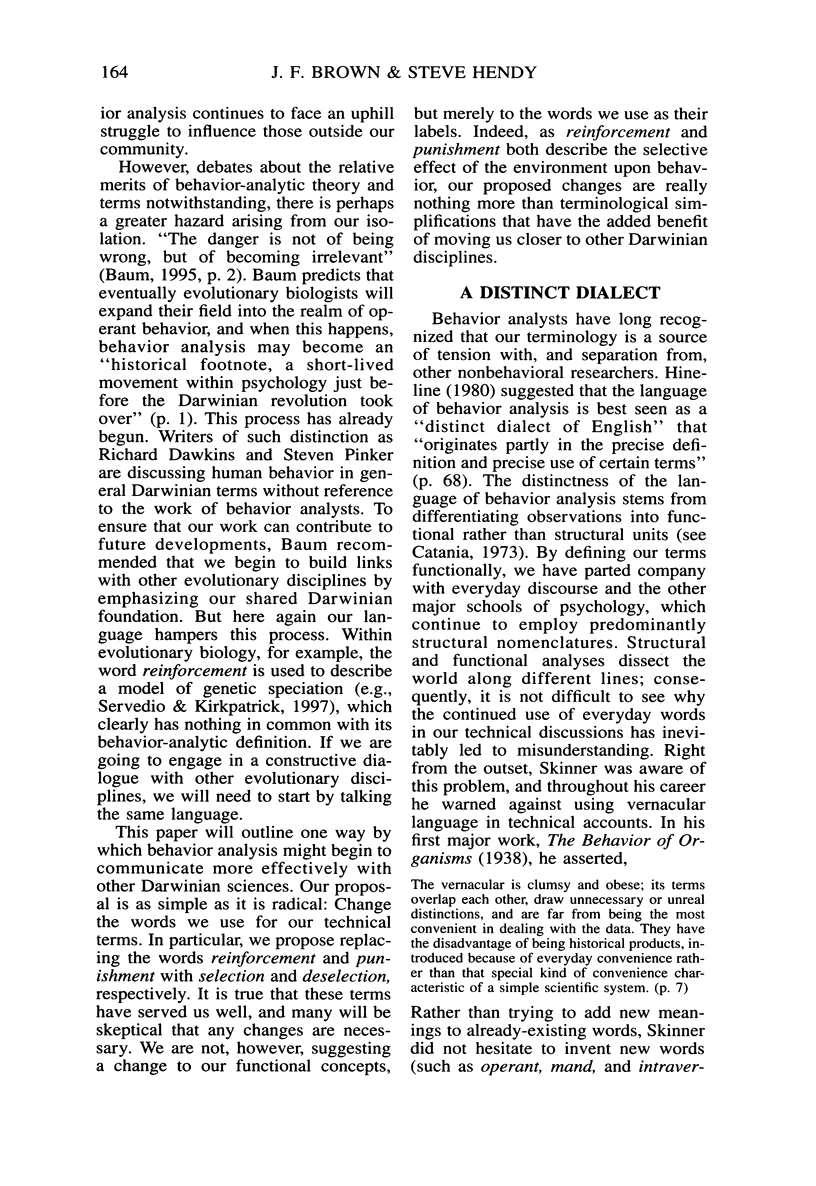
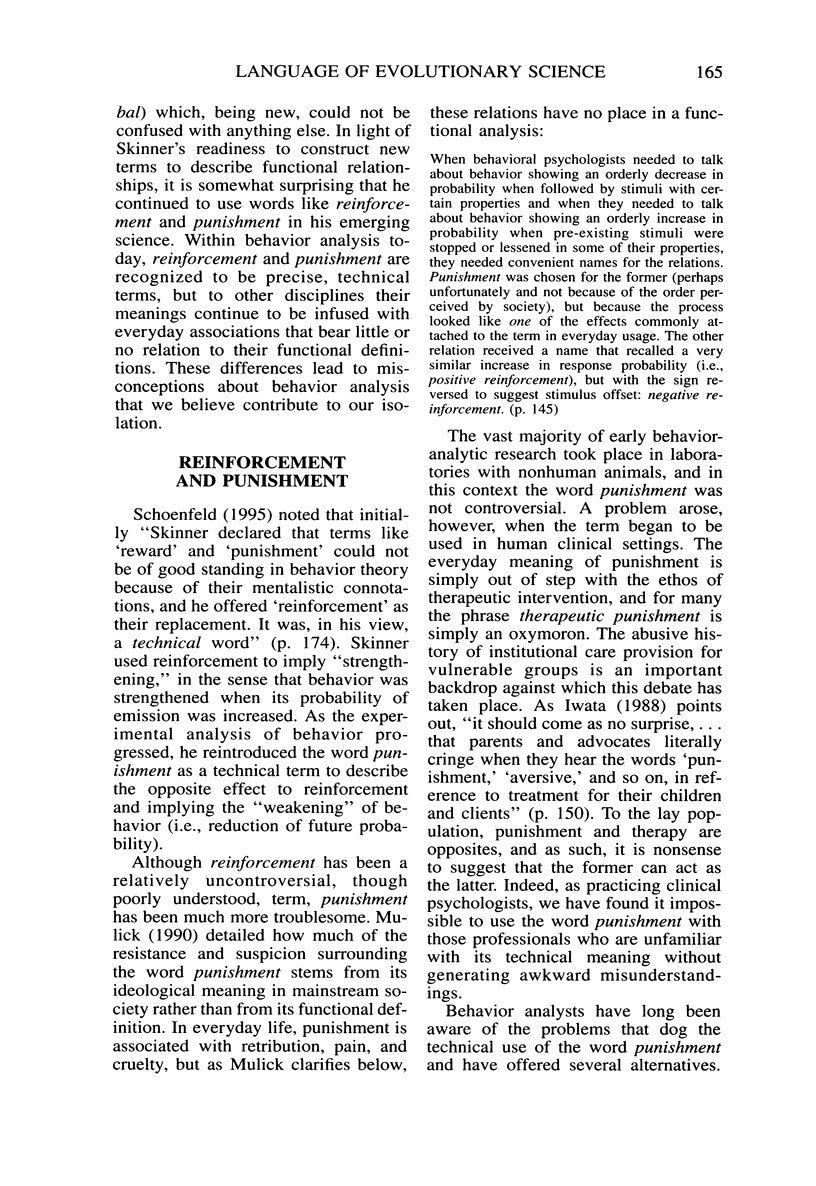
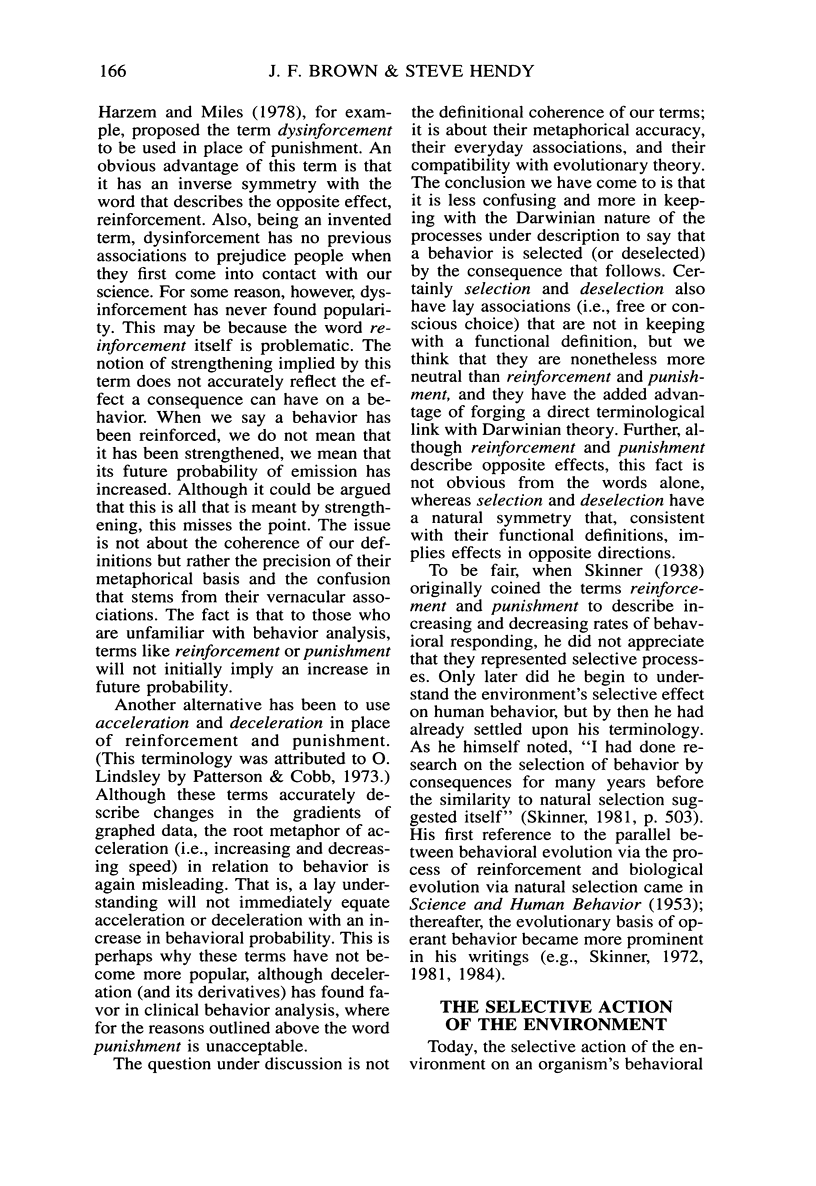
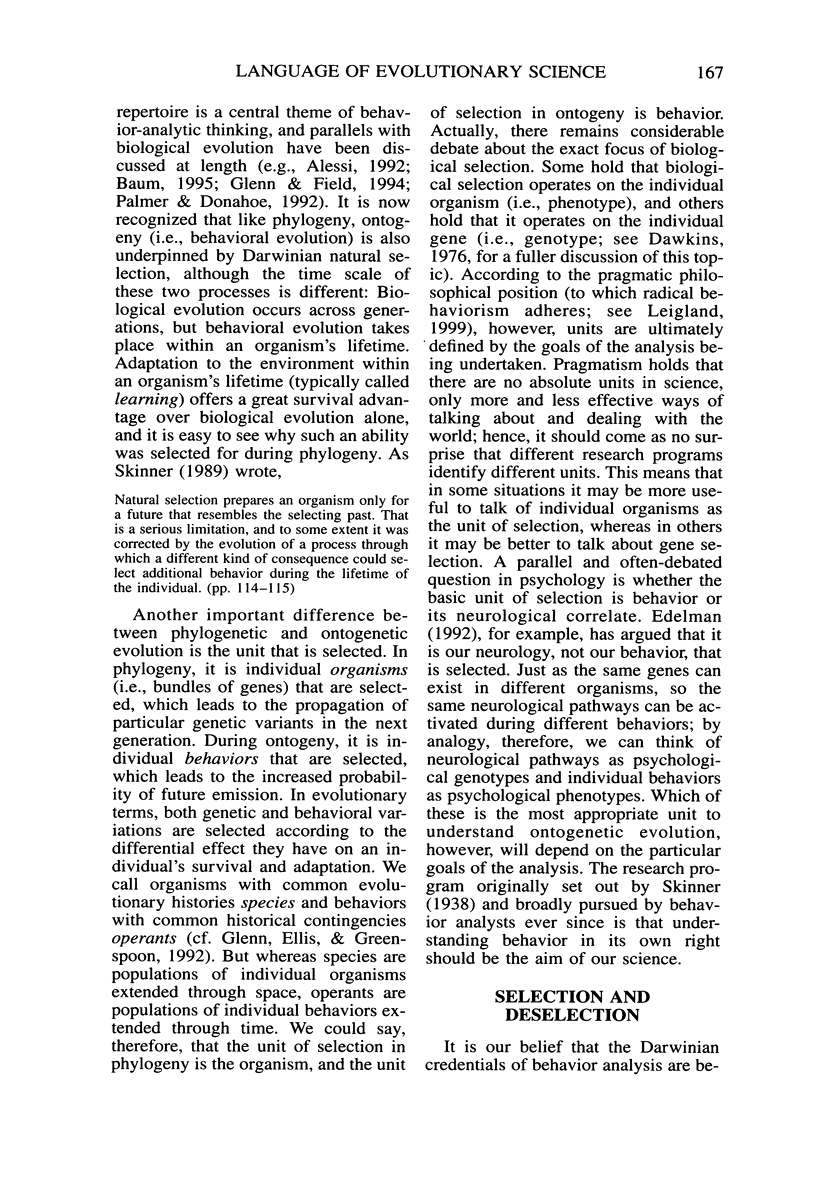
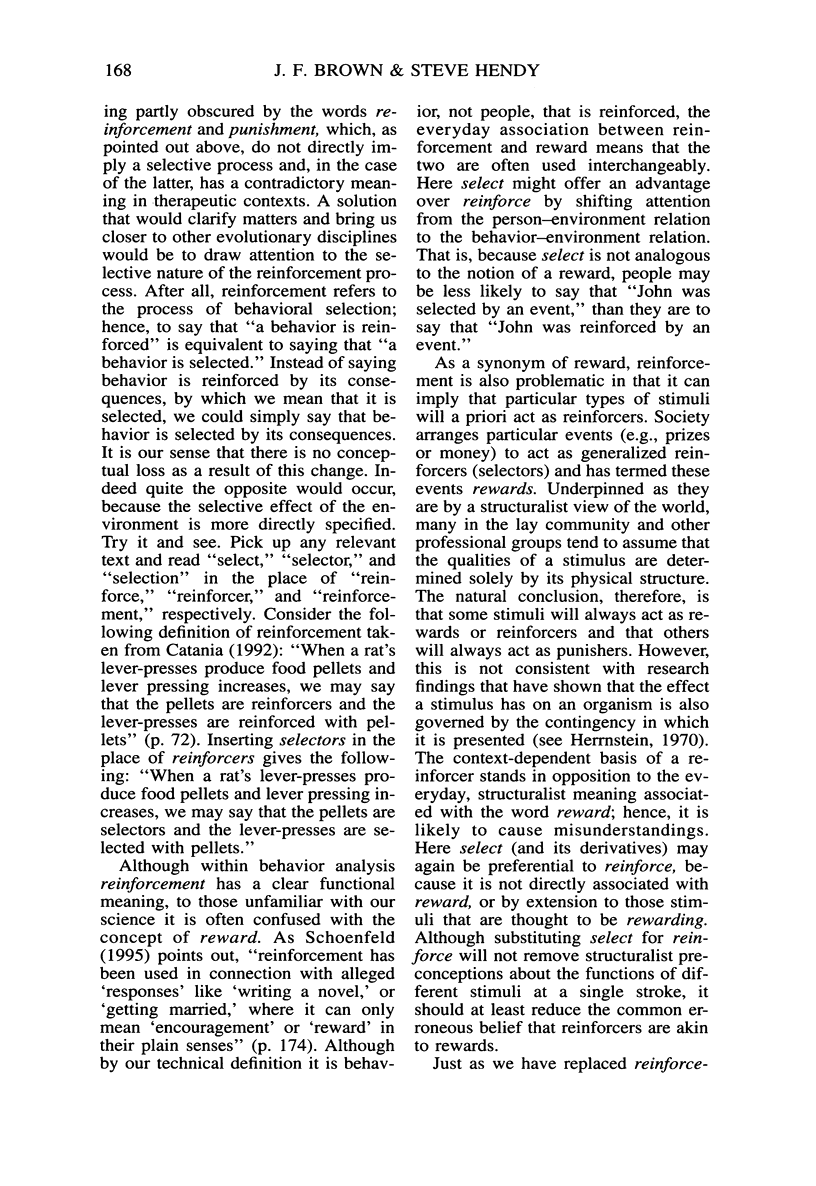
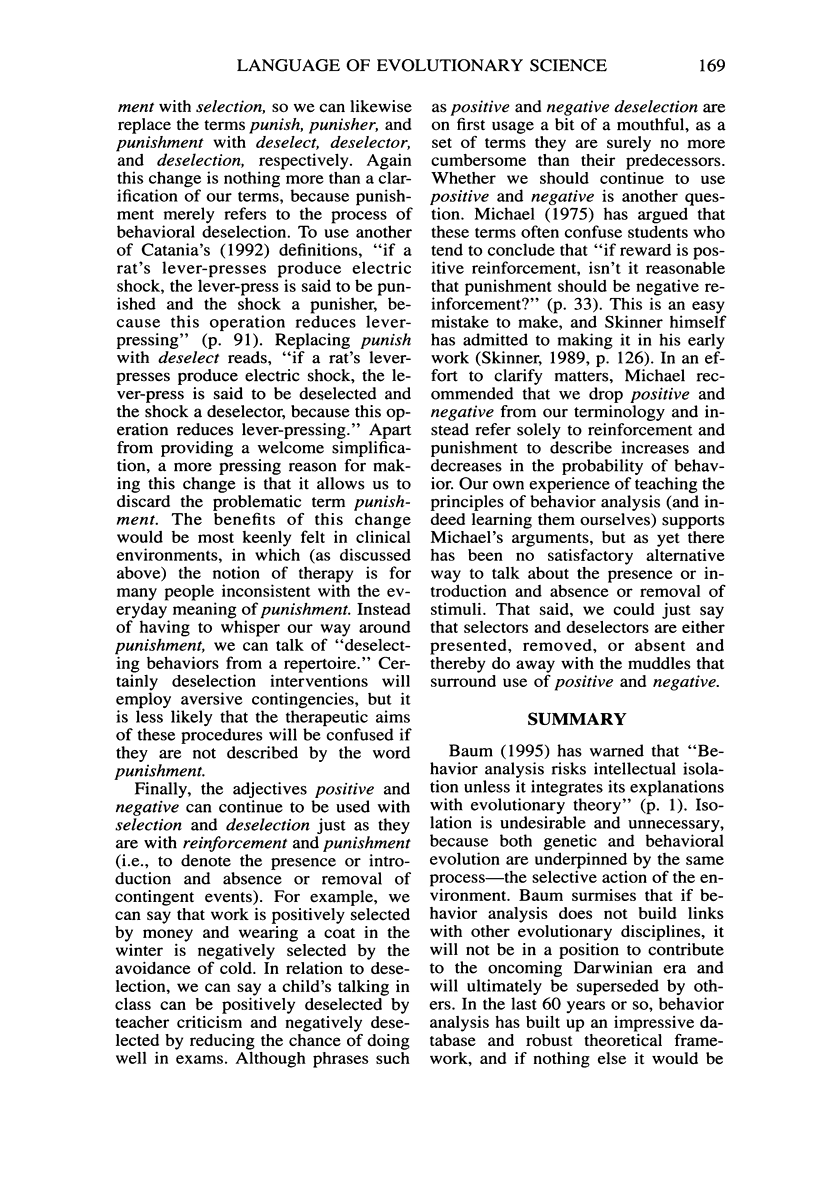
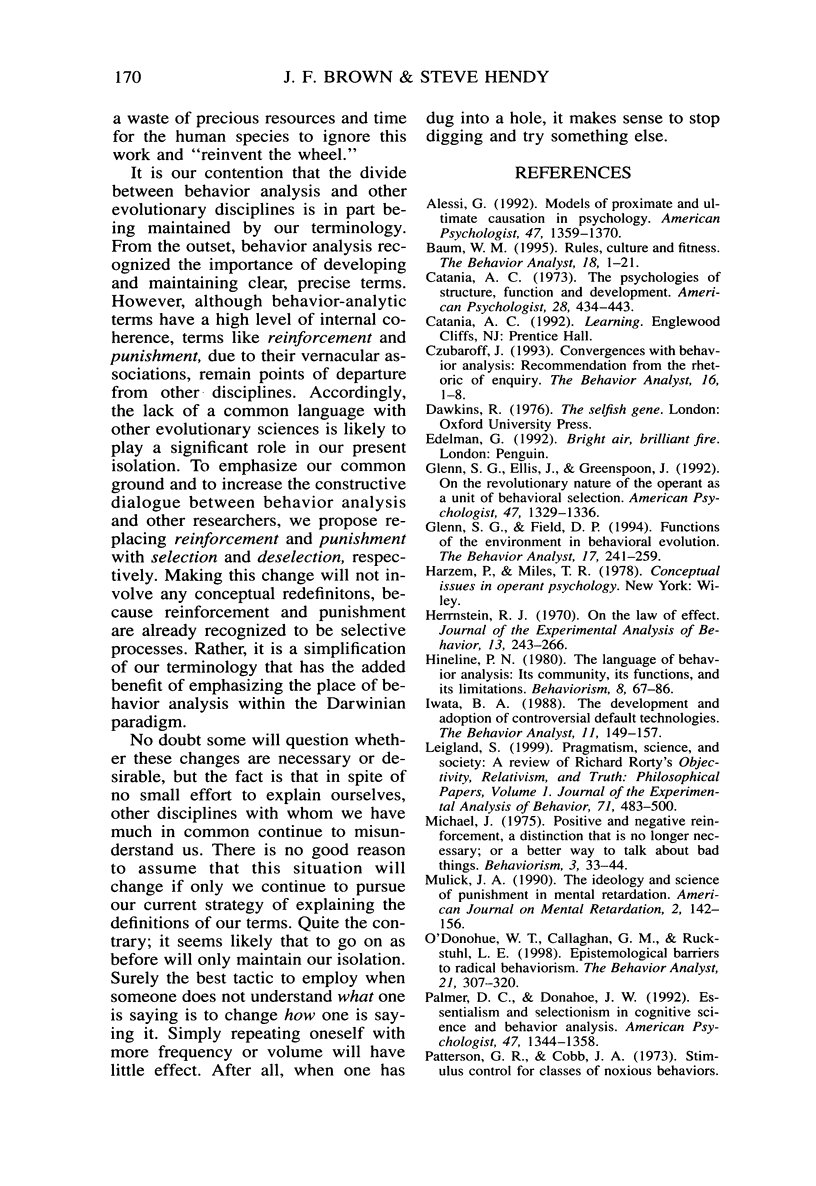
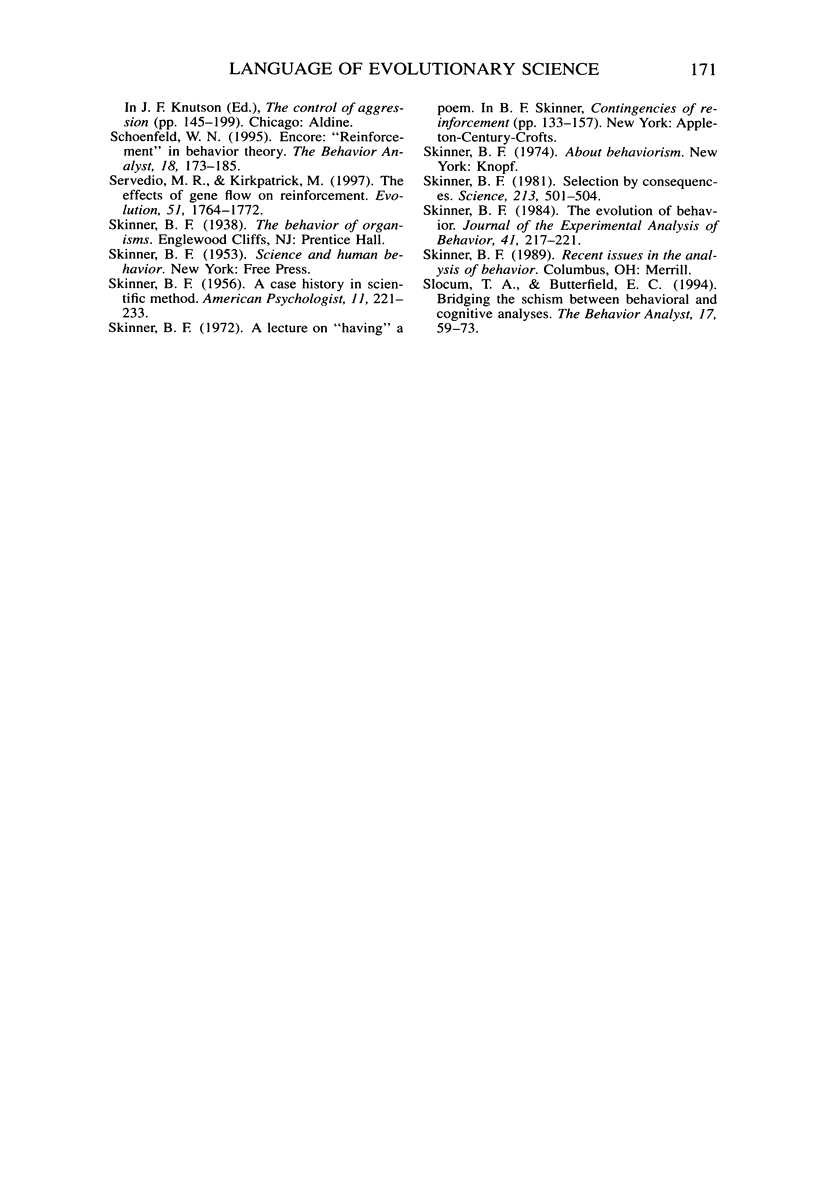
Selected References
These references are in PubMed. This may not be the complete list of references from this article.
- Alessi G. Models of proximate and ultimate causation in psychology. Am Psychol. 1992 Nov;47(11):1359–1370. doi: 10.1037//0003-066x.47.11.1359. [DOI] [PubMed] [Google Scholar]
- Baum W. M. Rules, culture, and fitness. Behav Anal. 1995 Spring;18(1):1–21. doi: 10.1007/BF03392688. [DOI] [PMC free article] [PubMed] [Google Scholar]
- Czubaroff J. Convergences with behavior analysis: Recommendations from the rhetoric of inquiry. Behav Anal. 1993 Spring;16(1):1–8. doi: 10.1007/BF03392604. [DOI] [PMC free article] [PubMed] [Google Scholar]
- Glenn S. S., Field D. P. Functions of the environment in behavioral evolution. Behav Anal. 1994 Fall;17(2):241–259. doi: 10.1007/BF03392674. [DOI] [PMC free article] [PubMed] [Google Scholar]
- Herrnstein R. J. On the law of effect. J Exp Anal Behav. 1970 Mar;13(2):243–266. doi: 10.1901/jeab.1970.13-243. [DOI] [PMC free article] [PubMed] [Google Scholar]
- Iwata B. A. The development and adoption of controversial default technologies. Behav Anal. 1988 Fall;11(2):149–157. doi: 10.1007/BF03392468. [DOI] [PMC free article] [PubMed] [Google Scholar]
- Leigland S. Pragmatism, Science, And Society: A Review Of Richard Rorty's Objectivity, Relativism, and Truth: Philosophical Papers, Volume 1. J Exp Anal Behav. 1999 May;71(3):483–500. doi: 10.1901/jeab.1999.71-483. [DOI] [PMC free article] [PubMed] [Google Scholar]
- Mulick J. A. The ideology and science of punishment in mental retardation. Am J Ment Retard. 1990 Sep;95(2):142–181. [PubMed] [Google Scholar]
- O'Donohue W. T., Callaghan G. M., Ruckstuhl L. E. Epistemological barriers to radical behaviorism. Behav Anal. 1998 Fall;21(2):307–320. doi: 10.1007/BF03391970. [DOI] [PMC free article] [PubMed] [Google Scholar]
- Palmer D. C., Donahoe J. W. Essentialism and selectionism in cognitive science and behavior analysis. Am Psychol. 1992 Nov;47(11):1344–1358. doi: 10.1037//0003-066x.47.11.1344. [DOI] [PubMed] [Google Scholar]
- Schoenfeld W. N. "Reinforcement" in behavior theory. Behav Anal. 1995 Spring;18(1):173–185. doi: 10.1007/BF03392705. [DOI] [PMC free article] [PubMed] [Google Scholar]
- Skinner B. F. Selection by consequences. Science. 1981 Jul 31;213(4507):501–504. doi: 10.1126/science.7244649. [DOI] [PubMed] [Google Scholar]
- Skinner B. F. The evolution of behavior. J Exp Anal Behav. 1984 Mar;41(2):217–221. doi: 10.1901/jeab.1984.41-217. [DOI] [PMC free article] [PubMed] [Google Scholar]
- Slocum T. A., Butterfield E. C. Bridging the schism between behavioral and cognitive analyses. Behav Anal. 1994 Spring;17(1):59–73. doi: 10.1007/BF03392653. [DOI] [PMC free article] [PubMed] [Google Scholar]


